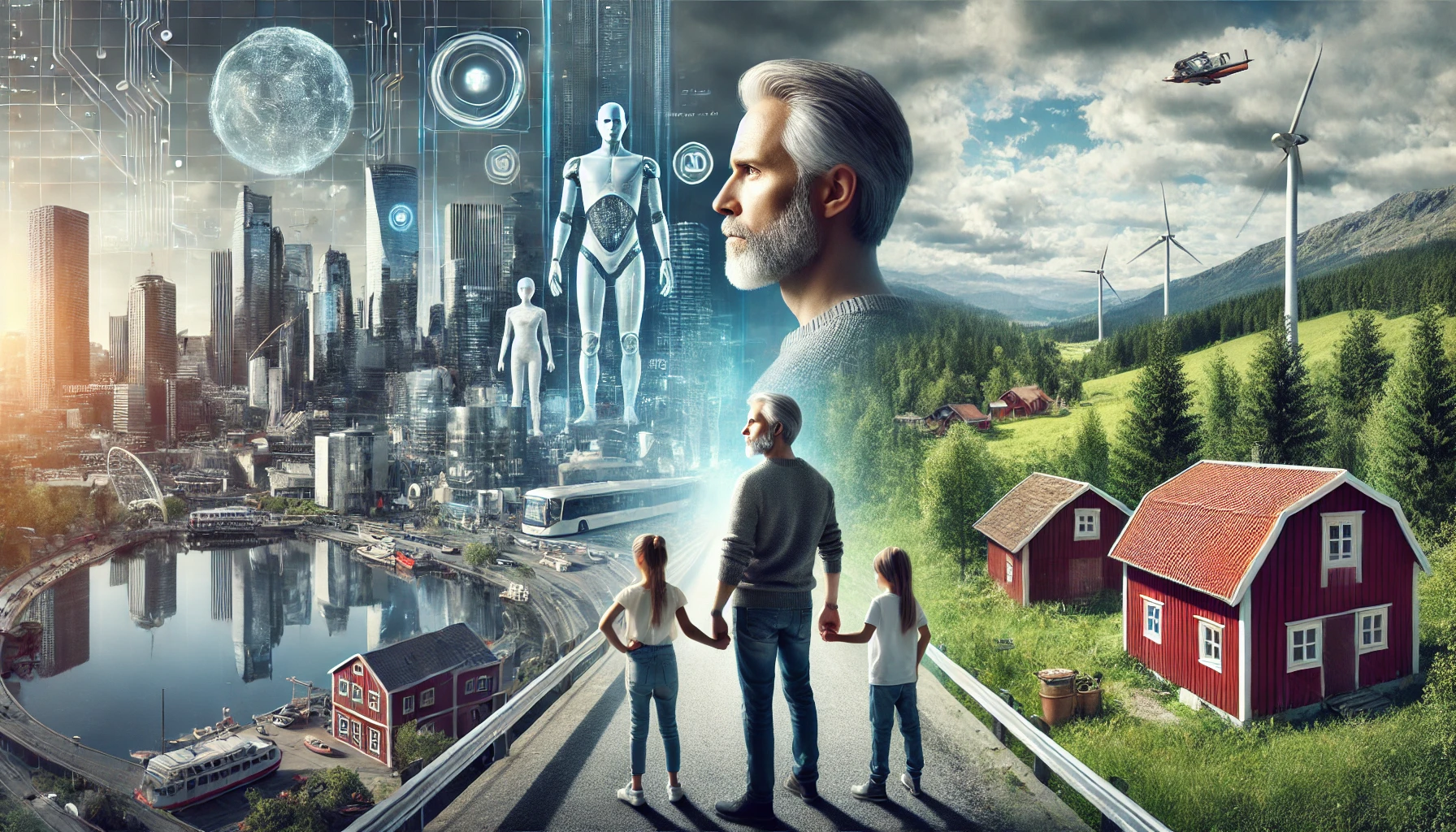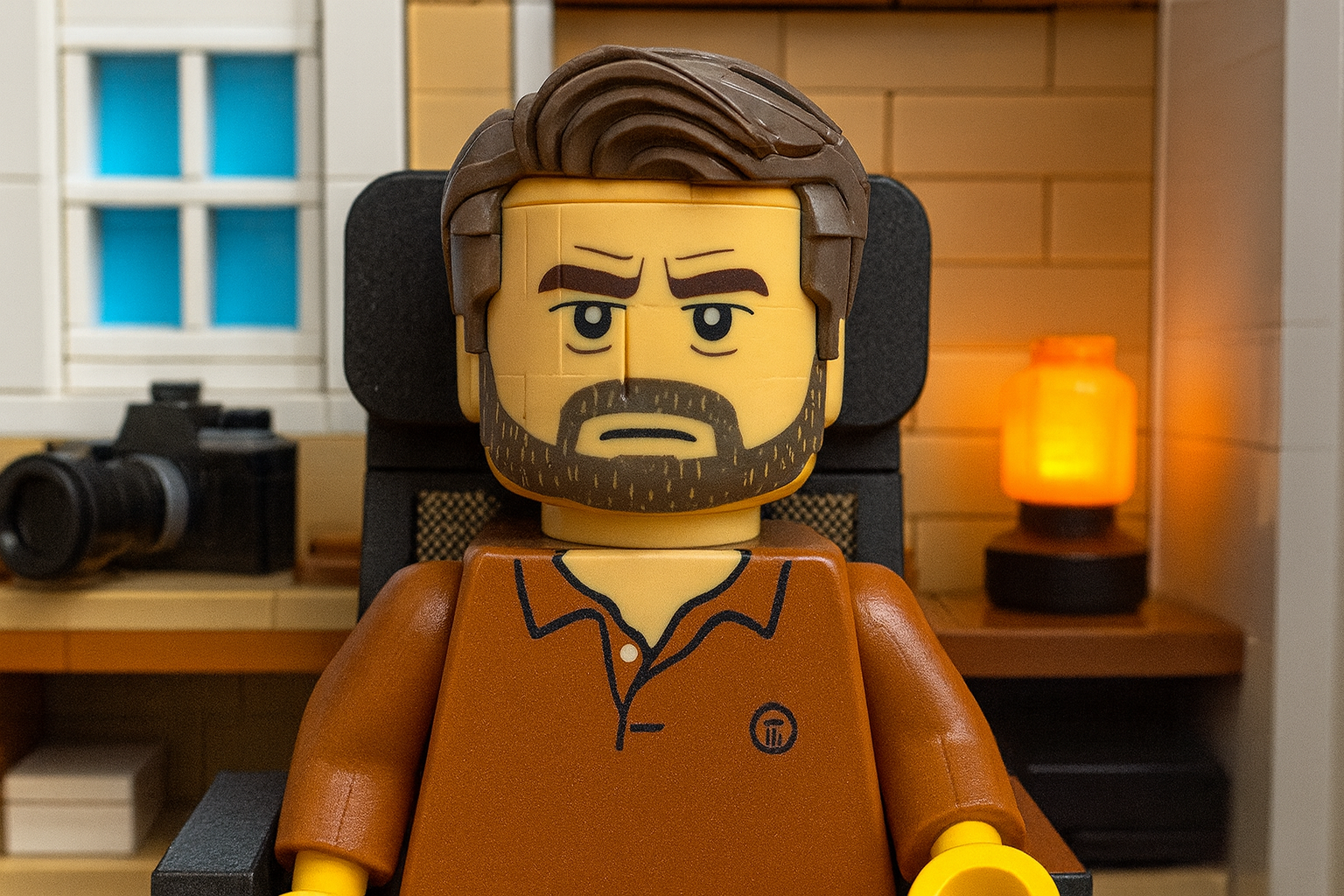Navigating Technology's Double-Edged Sword¶
At my age of 44, with three kids and a half a lifetime experience behind me, I found myself reflecting on the profound impact technology has on our lives. While listening to Nightwish's new song “the day of…”. The world today is vastly different from the one I grew up in, where technology was a tool to simplify tasks and have fun with. Now, it seems to have evolved into a force that not only shapes our daily existence (Smartphones, social media etc.) but also dictates the future.
 I came across Nightwish song “the day of…” which paints a vivid picture of an apocalyptic world—“Take shelter, skies are humming / Armageddon, second coming / War of the worlds, the end of history.” These lines struck a chord with me, not just as a portrait of a dystopian future, but as a reflection of the underlying fears that I carry in my heart. They’re not just about natural disasters or societal collapse; they also speak to the unsettling technological transformation of the world in ways we might not fully comprehend.
I came across Nightwish song “the day of…” which paints a vivid picture of an apocalyptic world—“Take shelter, skies are humming / Armageddon, second coming / War of the worlds, the end of history.” These lines struck a chord with me, not just as a portrait of a dystopian future, but as a reflection of the underlying fears that I carry in my heart. They’re not just about natural disasters or societal collapse; they also speak to the unsettling technological transformation of the world in ways we might not fully comprehend.
In our tech-driven world, innovation and money is celebrated. New gadgets, new software, and advancements in AI promise to revolutionize our lives. Yet, with each leap forward, there is a growing concern that we might be running towards a future where technology outpaces our ability to control it. (Terminator, anyone?) The song’s repeated commands : “obey, stay away, cover up”* echoes the creeping sense of unease that I feel as we live today where algorithms increasingly influence or decide our choices and behaviors, often without our conscious awareness.
The idea of a “War of the Worlds” is not a science fiction saga; could be a metaphor for the invisible battles that play out daily, often beyond public view. These battles aren’t fought with traditional weapons, but with data, algorithms, and code. The disruption they cause can be just as real, shaking the foundations of society in ways that, I hope, have been or will be very soon apparent.
These technological marvels seems to create a growing sense of disconnection. Digital spaces, while offering 24/7 connectivity, seems to foster isolation. The song’s imagery—“Mind virus, fear of the well-known / Keep us safe... Obey, stay away, cover up”—captures the paradox: we are more connected than ever, yet so isolated from each other and from the real world. This alienation is a recurring theme, reflecting the fears many of us have about the direction in which our society is headed: a world where we are connected but not truly connected to each other, informed but not truly aware. I think this might be the greatest problem we currently have in our schools, today.
As a parent and someone how is engaged with the implications of technology, these reflections have led me to a conclusion: While we can’t halt the march of progress, we can choose how we engage with it. The key isn’t to stop technology but to approach it with mindfulness and caution. It’s about making deliberate choices, adopting new tools with intention, and maintaining a balance between the benefits technology offers and the potential downsides. In short: be aware of technologies implications.
This approach is especially important when considering the next generation. My children will inherit a world where technology is even more pervasive than it is today. I think it is crucial to teach them not only how to use these tools, but also how to evaluate their impact critically. I am trying to learn them a sense of digital literacy, ethical awareness, and the ability to think independently. To me, that is the way to navigate the landscape of the future.
Ultimately, the challenge we face is one of responsibility: both personal and collective. As we continue to innovate and push the boundaries, as we should, of what’s possible, we must also remain vigilant, ensuring that the tools we create serve us, rather than the other way around. It is up to each of us to ensure that technology enhances our lives without diminishing us.
